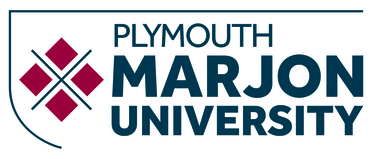Common Factor Mechanisms in Clinical Practice and Their Relationship with Outcome
Gaitan-Sierra, Carolina and Hyland, Michael E. (2015) Common Factor Mechanisms in Clinical Practice and Their Relationship with Outcome. Clinical Psychology & Psychotherapy, 22 (3). pp. 258-266. ISSN 10633995
|
Text
common factor mechanisms_Hyland.pdf Download (289kB) | Preview |
Abstract
This study investigates three common factor mechanisms that could affect outcome in clinical practice: response expectancy, the affective expectation model and motivational concordance. Clients attending a gestalt therapy clinic (30 clients), a sophrology (therapeutic technique) clinic (33 clients) and a homeopathy clinic (31 clients) completed measures of expectancy and the Positive Affect and Negative Affect Schedule (PANAS) before their first session. After 1 month, they completed PANAS and measures of intrinsic motivation, perceived effort and empowerment. Expectancy was not associated with better outcome and was no different between treatments. Although some of the 54 clients who endorsed highest expectations showed substantial improvement, others did not: 19 had no change or deteriorated in positive affect, and 18 had the same result for negative affect. Intrinsic motivation independently predicted changes in negative affect (β = −0.23). Intrinsic motivation (β = 0.24), effort (β = 0.23) and empowerment (β = 0.20) independently predicted positive affect change. Expectancy (β = −0.17) negatively affected changes in positive affect. Clients found gestalt and sophrology to be more intrinsically motivating, empowering and effortful compared with homeopathy. Greater improvement in mood was found for sophrology and gestalt than for homeopathy clients. These findings are inconsistent with response expectancy as a common factor mechanism in clinical practice. The results support motivational concordance (outcome influenced by the intrinsic enjoyment of the therapy) and the affective expectation model (high expectations can lead for some clients to worse outcome). When expectancy correlates with outcome in some other studies, this may be due to confound between expectancy and intrinsic enjoyment. Key Practitioner Message Common factors play an important role in outcome. Intrinsic enjoyment of a therapeutic treatment is associated with better outcome. Active engagement with a therapeutic treatment improves outcome. Unrealistic expectations about a therapeutic treatment can have a negative impact on outcome.
| Item Type: | Article |
|---|---|
| Additional Information: | Article available through the publisher link provided |
| Keywords: | Common Factors, Motivation, Affective Expectation Model, Mood Change, Therapeutic Treatment |
| Depositing User: | Ms Kerry Kellaway |
| Date Deposited: | 02 Aug 2019 12:28 |
| Last Modified: | 14 Nov 2019 15:09 |
| URI: | https://marjon.repository.guildhe.ac.uk/id/eprint/17451 |
| Related URLs: |
https://onlinel ... 0.1002/cpp.1894
(Publisher URL)
|
Actions (login required)
 |
Edit Item |

